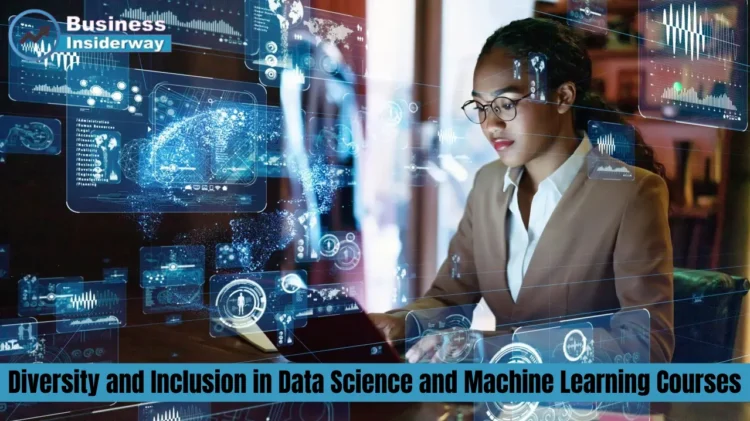In the ever-expanding landscape of data science and machine learning, the call for diversity and inclusion is gaining prominence as a crucial aspect of shaping the future workforce. The fields of data science and machine learning are not only driving innovation but also redefining the way we approach problem-solving. To harness the full potential of these technologies, it is imperative that the educational journey in these domains is inclusive, welcoming individuals from diverse backgrounds, perspectives, and experiences.
The Current State of Diversity in Tech Education
As we examine the current state of diversity in technology-related fields, including data science and machine learning, it’s evident that there is room for improvement. Historically, these domains have been dominated by certain demographic groups, leading to a lack of representation from women, underrepresented minorities, and individuals from economically disadvantaged backgrounds. Recognizing this disparity, educators, institutions, and industry leaders are now actively working to create a more inclusive learning environment.
Why Diversity Matters in Data Science and Machine Learning
Diversity is not just a buzzword; it is a fundamental element that fosters creativity, innovation, and holistic problem-solving. In the context of data science and machine learning, a diverse set of perspectives can lead to more robust and ethically sound solutions. Different experiences and backgrounds bring a variety of approaches to tackling challenges, ensuring that the technology developed is applicable and beneficial to a broader range of users. Moreover, diverse teams are more adept at addressing biases in algorithms and creating solutions that are fair and equitable.
Breaking Stereotypes: Encouraging Underrepresented Groups to Pursue Tech Education
To enhance diversity, it is essential to break down stereotypes and misconceptions surrounding tech education. Initiatives that encourage underrepresented groups to pursue data science certification courses play a crucial role in this regard. Mentorship programs, outreach efforts, and exposure to successful individuals from diverse backgrounds can inspire students who may not have initially considered a career in these fields. By dismantling stereotypes, we open doors for a more inclusive community of learners.
Inclusive Curricula: Shaping Courses for a Diverse Student Body
Inclusive curricula are key to ensuring that data science and machine learning courses cater to a diverse student body. This involves incorporating case studies, examples, and projects that resonate with individuals from different backgrounds. When learners can see themselves in the material and understand the real-world applications of the technology they are studying, it fosters a sense of belonging and relevance. Additionally, addressing potential bias in datasets and algorithms during the learning process is crucial to instil ethical considerations from the outset.
Bridging the Gap Between Education and Employment
Industry partnerships play a pivotal role in promoting diversity and inclusion in data science and machine learning courses. Collaborations with companies committed to diversity initiatives provide students with exposure to real-world applications of their skills and potential career pathways. Industry mentors can offer valuable insights and guidance, helping students navigate challenges and build confidence in their abilities. Moreover, these partnerships can lead to internships, job opportunities, and a more seamless transition from education to the workforce for individuals from underrepresented groups.
Building Supportive Communities
Creating a sense of community is essential for retaining diverse talent in data science and machine learning. Supportive networks, both within educational institutions and professional organisations, provide a platform for individuals to share experiences, seek advice, and celebrate achievements. These communities foster a sense of belonging and resilience, empowering individuals to overcome challenges and contribute meaningfully to the field. Encouraging diversity in leadership roles within these communities further amplifies the impact and influence of underrepresented voices.
Measuring Progress
Tracking and measuring progress are essential components of any diversity and inclusion initiative. Institutions offering data science and machine learning courses should establish metrics to monitor the representation of underrepresented groups among their student populations. Regular assessments of the effectiveness of diversity programs, coupled with feedback from students and faculty, enable continuous improvement. Transparency in reporting these metrics fosters accountability and reinforces a commitment to creating a more inclusive educational environment.
Conclusion
As these fields continue to drive innovation across industries, it is imperative that the workforce reflects the diversity of the global population. By breaking stereotypes, designing inclusive curricula, fostering industry partnerships, building supportive communities, and implementing metrics for inclusion, we can shape a more inclusive future where individuals from all backgrounds contribute to and benefit from the transformative power of data science and machine learning. Embracing diversity is not just a moral imperative; it is a strategic decision that ensures the continued advancement and ethical application of these technologies.














